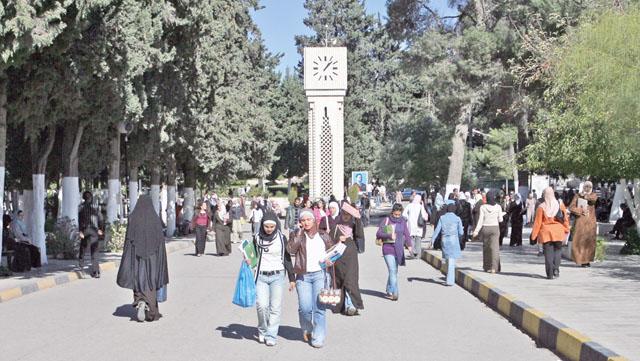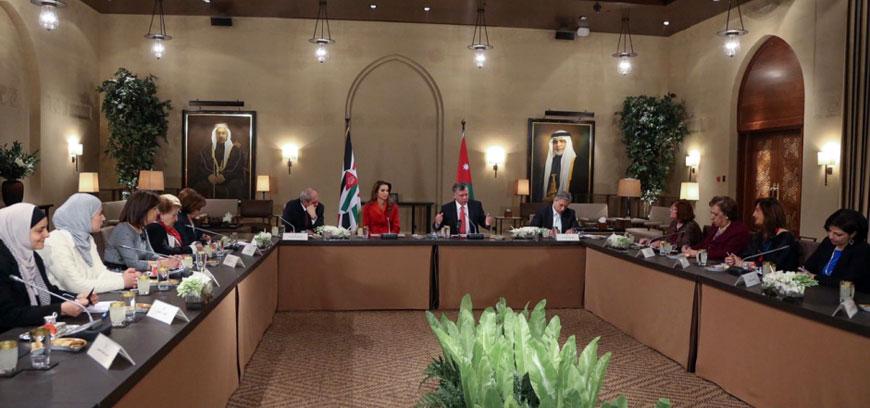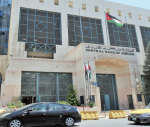You are here
Jordan marks women’s day with advancing struggle for gender equality
By Rana Husseini - Mar 07,2017 - Last updated at Mar 07,2017
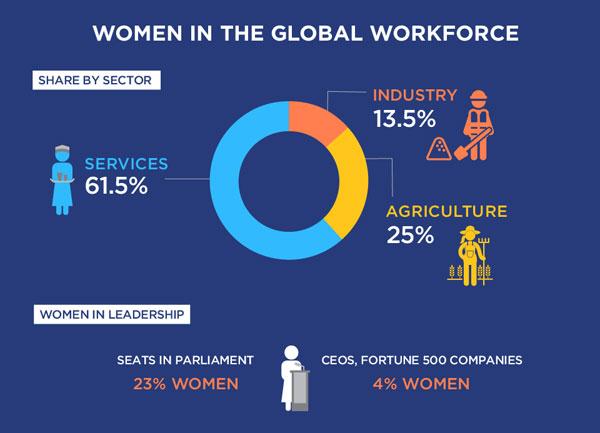
Courtesy of UN Women
AMMAN — Women’s rights activists in Jordan are marking International Women’s Day by renewing their calls to increase women’s political participation and ensure gender equality in all spheres.
The Kingdom is celebrating International Women’s Day, marked on March 8, with the slogan: “Women in the Changing World of Work: Planet 50-50 by 2030”.
“We are exerting our efforts to reach the goal of 50-50 slogan of this year’s women’s day, and hopefully, by the year 2030, we will achieve similar gains to boost women’s participation in all fields,” said Laila Naffa, the programme director of the Arab Women Organisation.
Naffa also praised the recent recommendations by the Royal Committee for Developing the Judiciary and Enhancing the Rule of Law.
The Royal committee recommended the scrapping of the controversial Article 308 of the Penal Code, which allows a sexual assault perpetrator to escape punishment if he marries his victim.
Among the Royal committee’s recommendations was an amendment, long-awaited by women activists, preventing a reduction in punishment if a woman was killed for reasons related to so-called “family honour”.
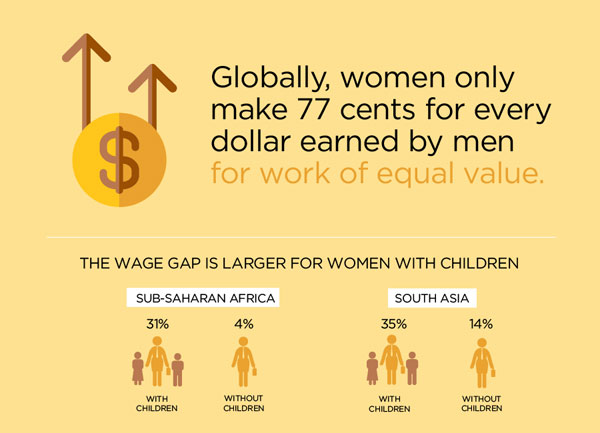 “These recommendations are very important because they work to ensure women’s safety and security in Jordan, and we will work hard to lobby our parliamentarians and government to adopt these recommendations,” Naffa told The Jordan Times on Tuesday.
“These recommendations are very important because they work to ensure women’s safety and security in Jordan, and we will work hard to lobby our parliamentarians and government to adopt these recommendations,” Naffa told The Jordan Times on Tuesday.
Former deputy and politician Abla Abu Olbeh said there have been some positive changes to legislation in favour of women.
However, Abu Olbeh who is the secretary general of the Jordanian Democratic People’s Party, told The Jordan Times that “not all women are benefitting from the new changes”.
“Poor and marginalised women do not benefit from new changes because either they do not know about them or they do not demand any of their rights, and this is one of the important segments that needs to be empowered to be able to participate equally in political life and in fighting extremist ideologies,” she added.
The Sisterhood is Global Institute (SIGI) advocacy group also issued a statement on this occasion, welcoming the Royal committee’s recommendations and calling for more changes to some of the articles in the Penal Code that were not tackled by the Royal committee.
One of the demands by SIGI was drafting a clear law that stipulates punishment for harassment at the workplace and in public.
The majority of women’s groups and organisations said one important amendment that is lacking was related to Article 6 of the Constitution and the inclusion of the word “sex”.
The provision stipulates that Jordanians are equal before the law, regardless of their ethnicity, language or religion.
Meanwhile, Basil Tarawneh, the government’s coordinator on human rights, issued a statement to mark the occasion, stressing the government’s commitment to empowering women and ensuring equal rights as stipulated in the Constitution and international conventions.
He highlighted the achievements in 2016, saying that the government worked to ensure better representation for women in the political sphere by introducing quotas.
Turning to the judiciary, Tarawneh said the number of female judges increased to reach 178 in 2016 and this is a “marked increase” since 2010, when only 60 female judges were on the bench.
The Social Security Corporation (SSC) also issued a statement, announcing a 2 per cent increase of active female subscribers.
The SSC stressed that the corporation’s law does not discriminate between men and women in terms of pension or other services.
It expressed concern regarding the low participation of women in the private sector, saying they constitute only 13.2 per cent although the number of educated women is on the rise.
“This is reflecting negatively on women who benefit from the SSC. Currently the number of women subscribers in the SSC is only 27 per cent,” the SSC said in its statement.
The League of Jordanian Democratic Women (Rand) also issued a statement, renewing demands to boost the status and role of Jordanian women and empower them to ensure they have their social, economic and cultural rights, in addition to their participation in public life and political decision making.
Marking the occasion, the Jordan Society for Human Rights highlighted the positive and negative developments regarding women’s rights.
On the positive side, the society highlighted women’s representation in the Lower House and the recommendations of the Royal committee.
However, the society said there has been an increase in “honour crimes” from 17 in 2015 to 26 in 2016.
On the occasion, UN Women Executive Director Phumzile Mlambo-Ngcuka called for “constructing a different world of work for women”.
She said that worldwide, women have to spend too much time on household responsibilities, typically double the amount of time spent by men.
Statistics
The Department of Statistics (DoS) on Tuesday issued new figures to mark the occasion, stating that Jordan’s female population in 2016 stood at 4.6 million or 47 per cent, which indicates that for every 100 females there are 113 males.
The Kingdom’s total population stands at around 9.5 million, according to DoS’ 2015 census.
DoS said females under the age of 15 comprise 35.6 per cent of all women, and females aged between 15 and 64 comprise 60.6 per cent, while women over 65 comprise only 3.9 per cent.
Statistics showed that illiteracy among females aged 15 years reached 10 per cent in 2016.
As for higher education, figures revealed that women enrolled in Jordanian universities comprised 51.8 per cent in 2015, showing that 55.3 per cent of females tend to study majors in the humanities compared to 47.9 per cent in scientific courses.
Over half of higher education graduates (55 per cent) are women, DoS said, adding that 27 per cent of teaching cadres at universities are women.
Regarding the job market, the survey for 2016 revealed weak participation by Jordanian women, DoS said in the report, noting that women’s economic participation stood at 13.2 per cent.
The majority of women are employees — 96.5 per cent — while the ratio of female business owners who do not work for other companies or institutions stood at 3.1 per cent out of all employed women, the report said.
The ratio of women who are members of professional associations stood at 34.5 per cent, according to 2015 statistics, while only 8 per cent are in professional association councils.
As for diplomatic and judicial affairs, 2015 figures show that one out of every five members in the diplomatic and judicial sectors is female and that one out of every three political party members is female.
In terms of owning property, 2016 data showed that 16.2 per cent of females in Jordan own land compared to 49.8 per cent of males, with their plots comprising 10.1 per cent of the total area while men own 68.4 per cent of the total.
Related Articles
Only 16 per cent of women were in the local labour market in 2013, according to figures released by the Department of Statistics (DoS) Wednesday.
AMMAN — Leaders of the Jordanian women’s movement commended the leadership and wisdom of His Majesty King Abdullah since the Accession to th
AMMAN — Women activists and female MPs met on Monday to discuss ways to improve gender equality and the empowerment of women and children in


